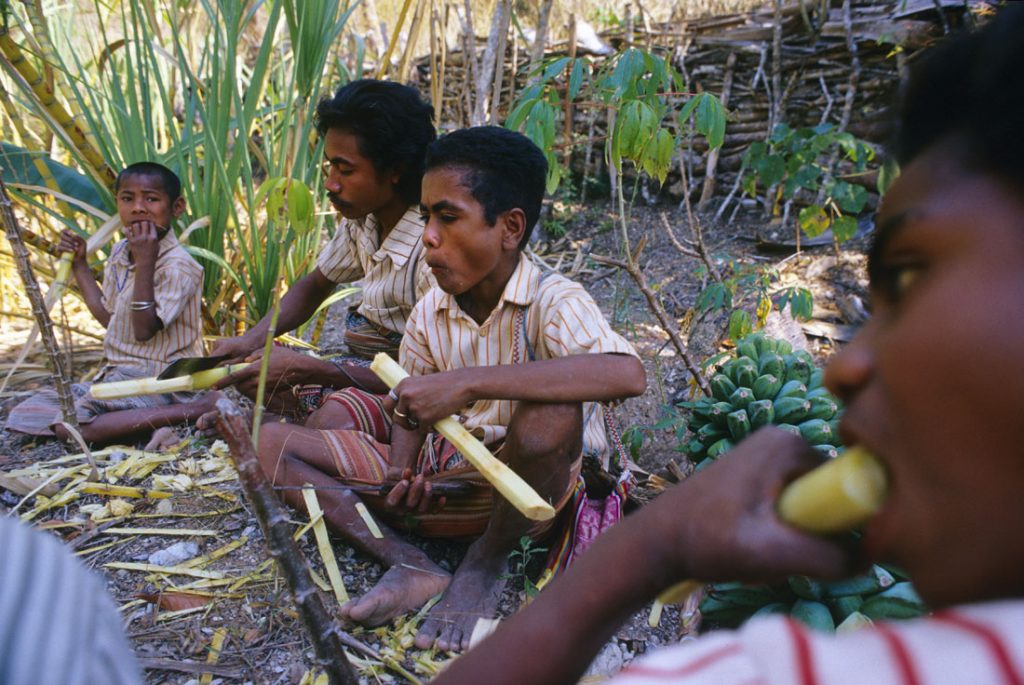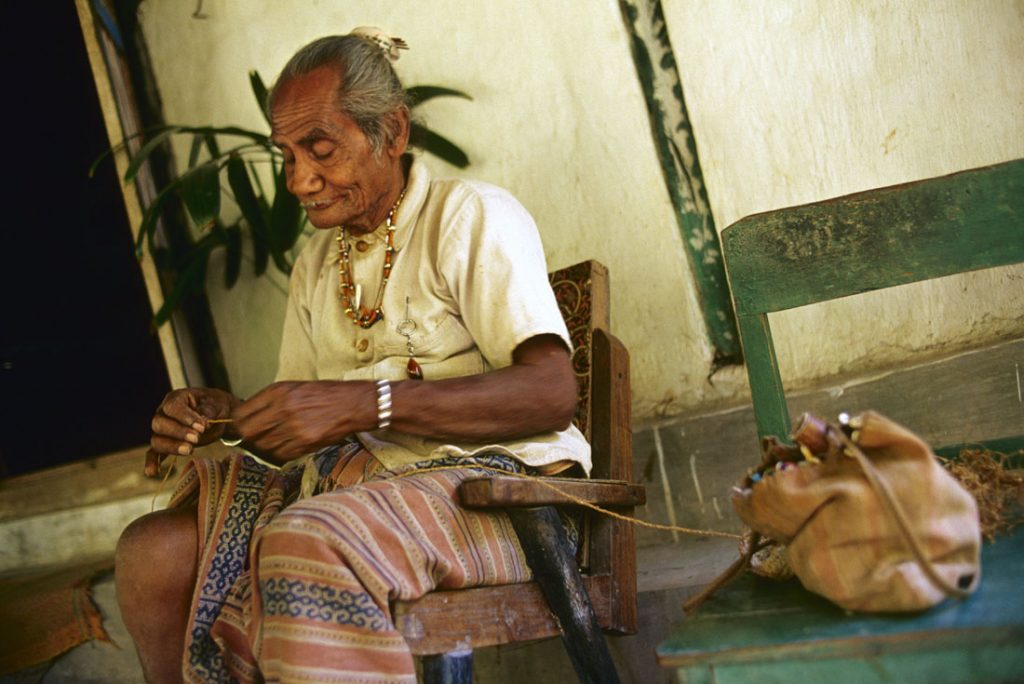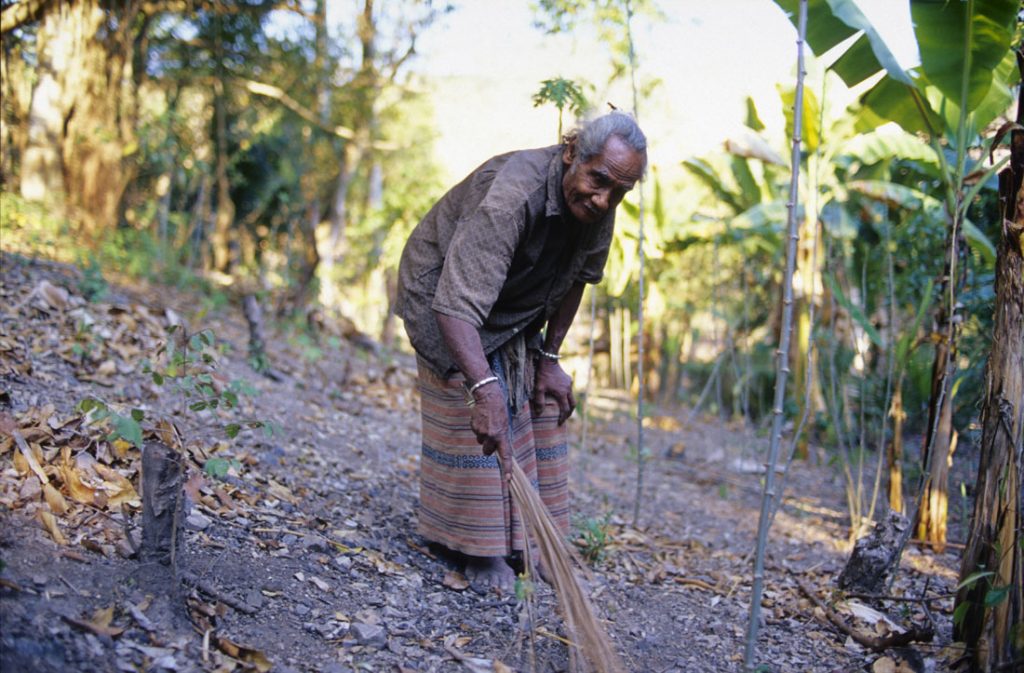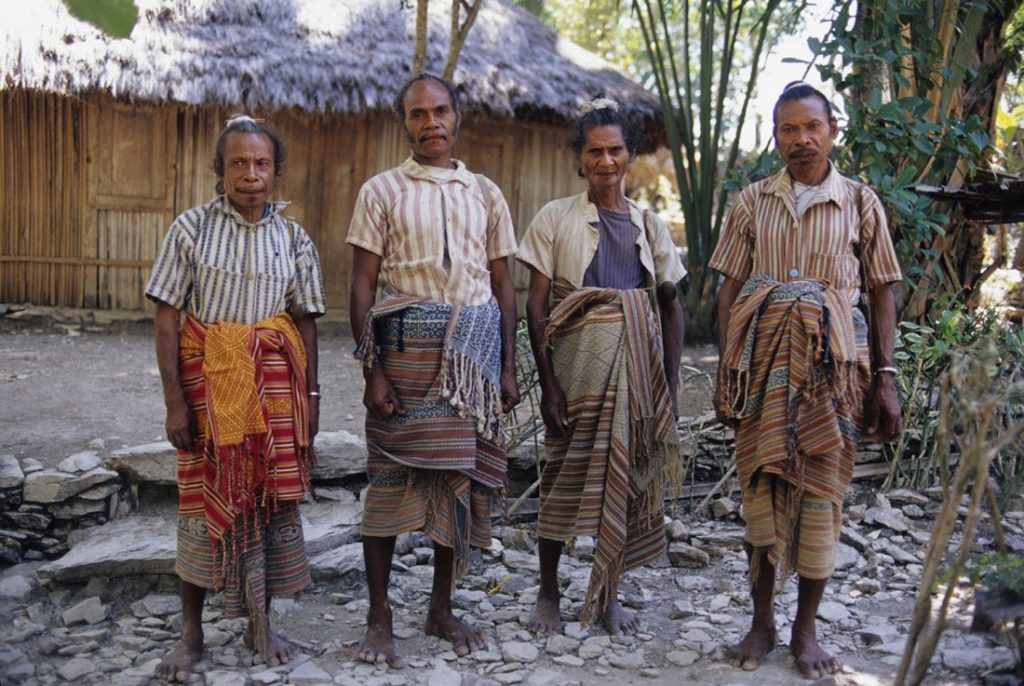Airplane Food
Late in January, I boarded a long-haul flight, 27 hours and 5 minutes, 9,405 miles, three connections. I packed emergency Larabars (food for quick energy), ordered gluten-free meals (a topic for discussion another day), and thought about my meeting with the king of Boti.
Boti is a small kingdom in the Indonesian state of East Nusa Tenggara on the island of Timor. Centuries ago, this region was populated by dozens of small indigenous kingdoms, but most no longer exist in this vast and multicultural republic now united under the flag of Indonesia. Still, the villagers of Boti hold tight to their traditional customs and life from the land: They weave clothes from cotton they grow, and they never wear shoes. They make dishes from coconut shells, bags from banyan roots, candles from nuts, and tools from wood.
In 2002, my husband and I trekked 6 miles through parched, deforested hills, toward the secluded village, to meet the king, who was 96 at the time. He greeted us on his front porch. There, at his home, we were served coffee alongside bananas and sweet potatoes grown on site. The bananas were plump and juicy, not at all mealy or dull. There is a complexity to the flavor of a great banana—plucked fresh—that is experienced only in the tropics, eaten at the origins. So many wonderful bananas never make it to stores in the West.
The king, Ama Nune Benu, sat on a painted wooden chair on his porch, twisting a long root into a rope, as he told us about his way of life. “We are close with the nature,” he said. City folk are not. City folk do not work the land and grow their own food, he told us. “I have 10 fingers. If I use these 10 fingers to get something to eat, I feel better.” Processed, store-bought foods are humanity’s downfall, according to the king. “Nowadays people get sick because they eat too much food with chemicals.”
In order to understand Boti, the king said, we must understand the environment, which gives its people everything they need. “If you cut the trees, you kill yourself,” the king told me. The village sits high on a hill in rocky terrain. Wind whips across steep slopes overlooking a dry riverbed below. These mountains, once rich in mahogany, teak, and sandalwood, are mostly barren due to centuries of colonizers, invaders, and developers. The land erodes, sending chunks of hillside sliding into that riverbed. “So I work very hard to stop that,” the king said. He preached the merits of saving trees, which save the land, which saves the water, which saves the people. This is what he learned from his father, and his grandfather before that.
It happened to be my birthday, so that night the king ordered all the village men to gather around a raging bonfire, dressed in the elaborate patterns of traditional handmade ikat cloth, with hairy anklets near their feet and swords and gongs in hand. They stamped their feet and danced an ancient prayer for good luck in battle. The performance was just for remembrance, as there were no more enemy kingdoms left to fight. The king’s biggest rival was creeping modernity, and the ensuing change he did not want. His fear: “I will lose my culture.”
We slept that night in a spare but lovely guestroom in a thatched building 100 meters from his house. The king rose at 4 a.m. to sweep the dirt on the garden floor, where hibiscus, banana, cassava, and palms grew in abundance.
Later in the day, seven members of the royal family guided us down a steep incline toward their garden. They were all barefoot, with thick, gnarled feet accustomed to the rocky land. They brought two small chickens in baskets to keep them company, and worked to the sounds of clucking. They lit a small fire with flint, signaling their presence to the spirits. Everything they do to the earth is spiritual, they said. The garden was full of cassava, bananas, papaya, sugarcane, various roots and tubers, and indigo for cotton dye. They grew popcorn, peanuts, and spinach too. The king had a motto: “He who buys food in the market must not be a good farmer.”
Before we left Boti, we learned the story of the king’s inaugural trip a few years earlier to Jakarta (at that time, a city of roughly 8 million). He was invited as an official government guest. He boarded a plane, and a flight attendant strapped him in. The king didn’t like the seatbelt; he thought it too constraining. Then he was given a box of airplane food.
“What’s this?” the king asked the attendant. “This must be new technology. I don’t like it.”
Ama Nune Benu died a few years later. I have not (yet) returned to Boti, but I hear the life and environment remain much the same. The king’s son, Ama Namah Benu, now rules in his place.
And to this day, every time I’m 30,000 feet in the air and handed a tray of boxed or cellophane-wrapped food, I think of this new technology the king saw as a menace to his culture.































